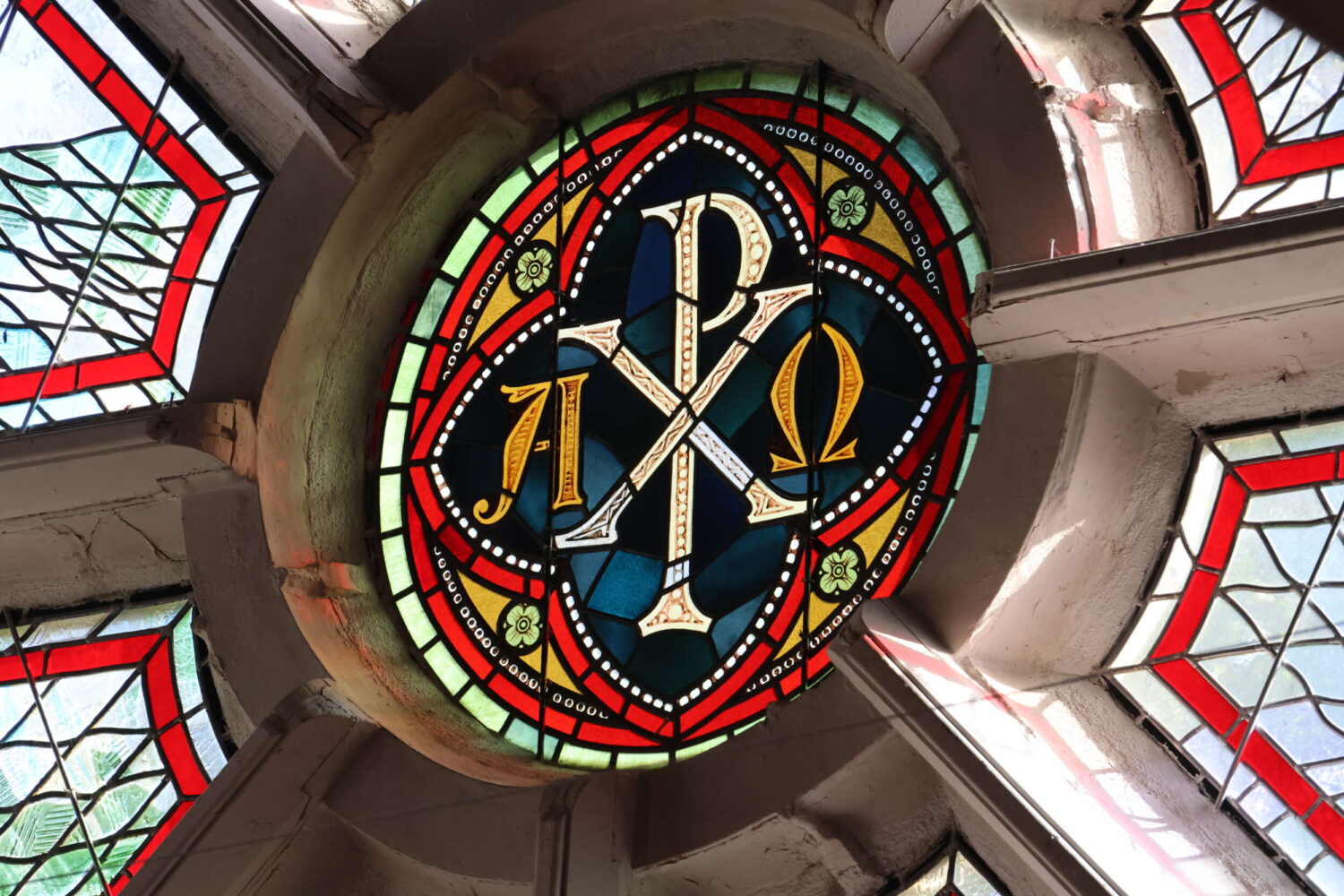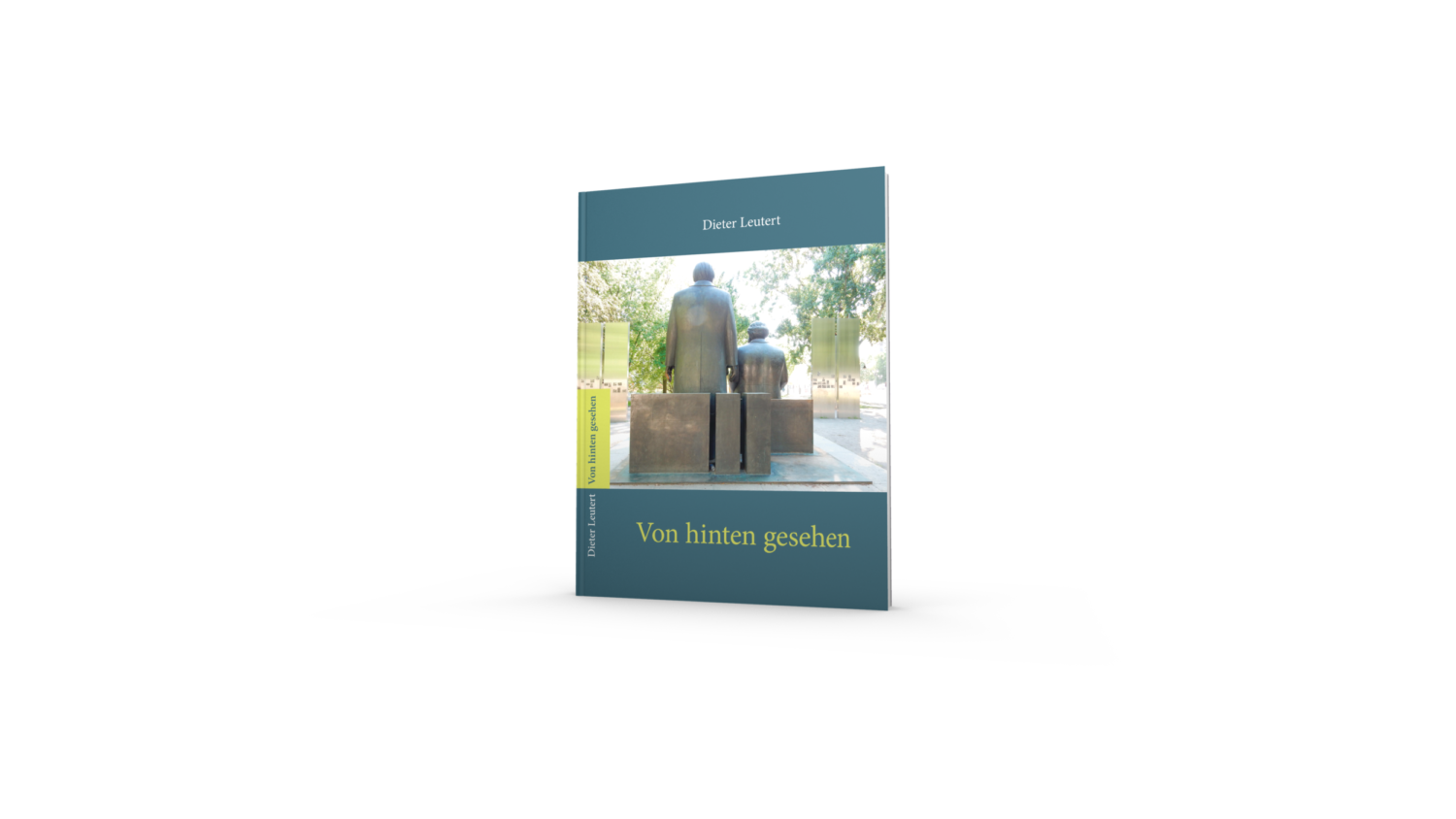Dieter Leutert “Why I am a Christian”
30. Nov. 2023 / Events / Science & Research
"For me, love is the source of the cosmos" (Hans-Peter Dürr, quantum physicist, Nobel Prize winner)
The German philosopher Kurt Flasch wrote a book entitled "Why I am not a Christian", which was published in 2013. At the end, Flasch makes a kind of confession of faith. He reveals what he believes in. He quotes Hölderlin, just one sentence: "Always, dear one, go, the earth and the heavens hold."
He calls this sentence "religiously poetic" and writes: "The intimate sentence gives confidence without asserting anything cosmological or theological" (p. 264).
We will come back to this later. I myself counter Flasch's honest confession with my own confession: Why I am a Christian.
A tiny glimpse into the depths of being in the world
Religious or ideological confessions invoke reason, or at least they do not contradict it. Now we are aware that our reason - and there is no other, better reason available to us - is a rather problematic matter: limited, in every respect only a tiny (oblique?) glimpse into the depths of the world. We would not be able to recognise more, nor would we be able to bear it. So, the world is actually "quite different". But we are dependent on our reason and want to use it. Would we have an alternative? Of course, we sense the higher, deeper – the unspeakable – that lies behind our knowledge of reason.
Nothing more powerful than love
For me it is – reasonably enough – clear that behind? Before? Above? this "world" of ours there is something greater, something decisive. Evolution, development or not - there must be something or at least have been something, developed, "evolved". Nothing comes from nothing. Ernst Jünger makes fun of the "big bang". It is typical of our time to start everything with a bang. I prefer love. Because whatever was (or is!) there, it must be filled with an unspeakably powerful love: In my opinion, there is nothing more powerful, more victorious than love. World history, including our personal experience, shows that love is by far the strongest of the many psychological forces (for example evil, envy, complacency, generosity, reliability and so on). It overcomes everything – and it is the "original source", the ultimate essence of the universe and all life.
Love is always an individual relationship
I assume that many of my contemporaries agree with this. But I go one step further. I call this "primal love" God. So I believe that this primal force is not something impersonal, not just a substance, entity, atmosphere, algorithm or the like – but an ego, a person, i.e. approachable, ready for contact. It can't reasonably be any other way. Because love, real love approaches me, looks at me, stretches out its hand, yes, wants to touch me. Love is always an individual relationship, something "personal". That is why I pray with the oldest Christian profession of faith: "I believe in God the Father, the Almighty, Creator of heaven and earth."
Faith in Jesus Christ is a personal decision
I go one step further again: I call myself a Christian. In the early Christian confession just quoted, it then says in the 2nd article "I believe in Jesus Christ, God's only begotten Son ..." Perhaps some will ask: Is that necessary? Isn't God enough?" For the (callous) historian, Jesus of Nazareth (died 30 AD) is a problem. His historical existence, his work in Palestine at the time of the first Roman emperors, is certain. There are enough reputable sources that attest to him. But these, as I said, credible texts also report events of a totally unusual, singular nature, above all the resurrection "on the third day". In short: "historical reason" demands neither unbelief nor belief. You have to decide for yourself! Belief in Jesus Christ is an entirely separate matter. Science does not take away either the against or the in favour. However, there are arguments in his favour that are definitely worth considering.
God's love is revealed in sacrifice
Love, true love, is concrete, is action, is therefore more than just feelings, moods and fine words. The real, deepest love is revealed in sacrifice, indeed in self-sacrifice – for us, to redeem our guilt. Ultimately, it is the self-sacrifice of God. For in Jesus, God comes to us, he stretches out his arm to me. Here, of course, human understanding must capitulate. Here we can only be moved, marvelling in awe. To some, this act of self-sacrifice (of God!) may seem strange, excessive, even superfluous. We can only comprehend it or sense its necessity if we try to visualise the depth of evil. The resurrection of Jesus "on the third day" is, on the one hand, attested to by sources – on the other hand, it is simply incomprehensible. All thinking and talking about the Christian faith always comes back to one point, the heart of the matter: love. Love in its ultimate, overwhelming depth. I counter the critics: What we are told from beginning to end, from the birth of Jesus, the miracles, to the announcement of the future kingdom of God, is attested to many times. The texts are not from a later time. They are only a few years after Jesus. The authors report honestly and openly about their own failures. Deviations and contradictions remain.
The Jewish people – a phenomenon
Jesus and the Christian faith cannot be discussed without looking at the background: Judaism. There is no more enigmatic historical phenomenon in the world. It was precisely this people that God chose as his people, to whom he revealed the principles of a wholesome individual and social life and from whom he chose Jesus of Nazareth as the Christ – the Called One – this tiny people was geographically located at the hinge of three continents and geopolitically at the most dangerous point, between hostile superpowers. For thousands of years, the Jews have been hated and persecuted, scattered across the world. They are ultimately indefinable – neither nation nor race nor language – and yet they are there, today as they have been for millennia. Their gift to humanity, apart from the religious one, remains the idea of the modern, democratic state. At Sinai, God offered them a covenant and showed them that state and religion are to be humanely kept apart – in contrast to state deification. My conscience should be critical of the state. This is why Jesus said: "Render to Caesar the things that are Caesar's and to God the things that are God's" (Mt 22:21).
Looking back on a life with God
I am writing all this in 2018, almost ninety years old, and looking back on my life like someone gazing into the vastness of a landscape. I know such experiences from hiking in the Saxon Ore Mountains. You never forget such impressions. Today I can say: God has blessed me abundantly. I have experienced miracles, preservations, encounters. I have experienced God, not least in the church of Jesus Christ – whether Catholic or Protestant, Adventist or otherwise. I have found many wonderful people. It was a rich life. It was also a life with guilt – the forgiveness of which I am certain.
God's love speaks to us
May I return to the philosopher Kurt Flasch quoted at the beginning. He loves that Hölderlin verse: "Always, dear one, go, the earth and the heavens hold."
Isn't that a religious confession? Above everything, behind everything, there is "something" that holds everything – and gives us comfort. Or am I overinterpreting? Isn't Hölderlin, isn't Flasch basically talking about love that encompasses everything? And is it really so difficult to imagine that this love – precisely because it is love – speaks to us and sacrifices itself?
Abstract:
1. The universe comes from the most powerful thing imaginable.
2. The most powerful thing imaginable is love.
3. Love is a person.
4. Love ultimately manifests itself in sacrifice.
Dieter Leutert wrote this text in November 2018. A book with his essays was published in 2016: "Von hinten gesehen". Publisher Books on Demand | ISBN 13-978–3741250545 | 204 pages | Paperback 14.80 EUR | Available from bookshops.

